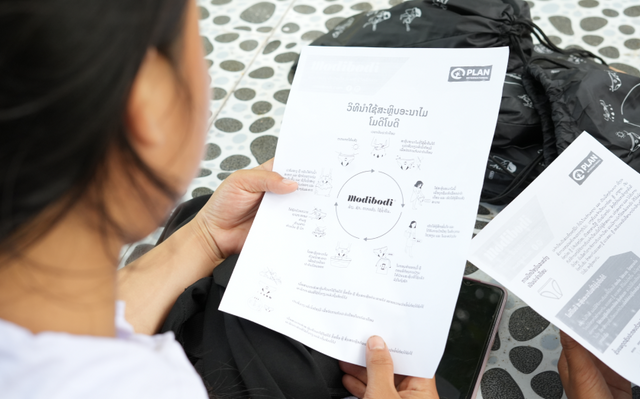Understanding and managing your period moodswings
Feeling a little moody and tired before your period? You’re not alone. Premenstrual syndrome, also called PMS, is a combination of physical and emotional symptoms that typically show up a week or so before your period. And while it can be a massive pain (literally), it’s perfectly normal. But you don’t need to endure the symptoms without relief. We spoke with menstrual health expert Dr Andrea Huddleston about all things PMS, from understanding what’s going on in your body to managing period mood swings so you can navigate this phase of your cycle more comfortably.
Let’s talk about PMS
PMS can impact your emotions, physical health and behaviour, and it usually happens between ovulation and the start of your period.
During this time, you might have period mood swings that make you feel more anxious, irritable, sad or angry, making regular stress feel pretty overwhelming. Your appetite might change, with strong cravings for certain foods (chocolate, anyone?). Sleep can be challenging, and it can be hard to concentrate on everyday tasks.
Physically, you might experience bloating or cramps that cause discomfort in your lower abdomen. Your breasts might feel sore or swollen. Acne could pop up more than usual. You might also add constipation, headaches and muscle soreness to the list. It’s a lot.
Around 90% of women go through some form of PMS during their reproductive years. And if it gets severe, it might be something called premenstrual dysphoric disorder (PMDD).
PMDD vs PMS
PMDD is like a heightened version of PMS, affecting a smaller percentage of people who menstruate – around 3 to 8%.
Dr Andrea describes PMDD as PMS on steroids and recommends chatting with your healthcare professional if you think it’s affecting you. “If someone is experiencing very severe symptoms, including an exacerbation or new symptoms of depression anxiety, if they have got severe mood changes almost with suicidal ideation, which is part of the PMDD picture, then I would suggest that they seek help really quickly,” she says.
How your period affects your mood: all about hormones
So why does all of this happen? There are 3 main reasons: hormones, neurotransmitters and stress.
During the luteal phase of your ovarian cycle (that time before your period), estrogen peaks, and then it should go down as progesterone takes the lead. Besides being a mood helper, progesterone also works with an inhibitory neurotransmitter called GABA in your brain, which keeps you calm. But when stress kicks in, it can mess with progesterone, leading to more PMS troubles. That can be why it feels like your luteal phase mood is all over the place.
“When we’re stressed, we’re making a lot of cortisol, which is our main stress hormone. And cortisol is the one and only hormone that our body cannot survive without.
When our body needs to make more cortisol, it will use other hormones to create more of it. And the first thing that it can use for that is actually progesterone,” explains Dr Andrea. “That’s usually the time that women start to notice changes in their mood.”
Can you avoid mood swings during periods?
Here’s the good news: there are steps you can take to help manage all this. You might not completely avoid mood swings during your periods, but these changes can make a big difference.
Manage your stress levels with stress-busting techniques
If stress is playing a role in your mood swings, addressing it head-on can make a significant difference. Exercise is a fantastic stress-buster, and you could also consider stress reduction techniques like controlled breathing and meditation. Here’s a fun fact: spending quality time with your friends can actually raise your progesterone levels. So those heart-to-hearts? They’re great for avoiding mood swings during your periods.
Keep your hormones in check with a balanced diet
When it comes to food, focus on a balanced diet with enough lean protein, healthy fats, fibre, and carbohydrates. And don’t forget about vitamins – studies show that vitamin D, magnesium, vitamin B6 and vitamin C can all play a role in keeping your hormones in check.
Consider medications to manage your symptoms
If you need a little extra help, chat with your healthcare professional about what medications could work for you. Nonsteroidal anti-inflammatory drugs (NSAIDs) like ibuprofen and naproxen can ease pain and cramps. Hormonal birth control is another option to consider, as it prevents ovulation and can relieve physical symptoms. Antidepressants, specifically SSRIs, can address mood-related issues associated with PMS. And diuretics may also be useful in relieving bloating and breast tenderness.
Remember, everyone is different, so finding the right combination of lifestyle changes and, if necessary, medications may take a bit of trial and error. And sometimes, you might need to get the professionals involved.
“If PMS is interfering with your quality of life and your activities of daily living, if it’s having an impact on your work or relationships, or if you just think that your symptoms are beyond what you think is manageable on your own, then I would absolutely suggest getting some support for that,” says Dr Andrea.
Feel supported every cycle
Navigating the ups and downs of PMS is a normal part of the menstrual cycle, but relief is within reach. And whether you’re dealing with typical PMS or, in more severe cases, the heightened PMDD, your friends, family and healthcare professionals are there to support you. For more insights into your menstrual cycle and tips on managing symptoms, take a look at our blog.








